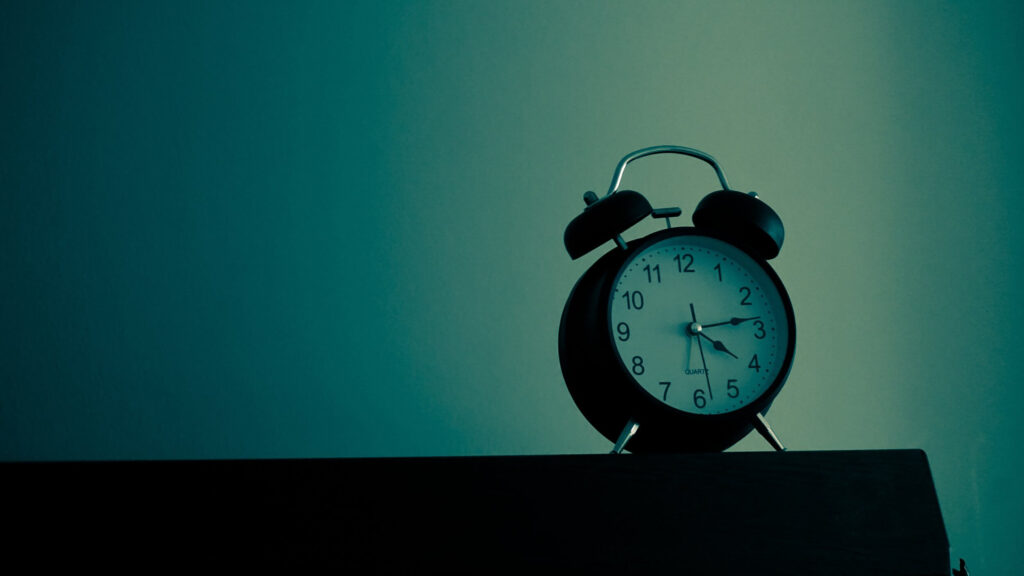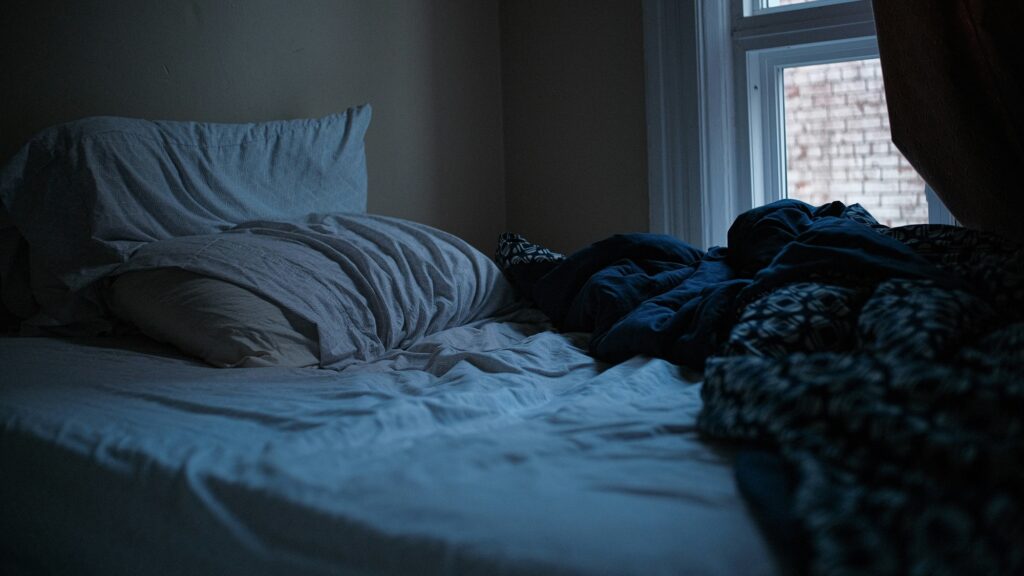Do you ever set your alarm to a really awful tone just so it’ll wake you up in the morning? Or maybe you set multiple alarms to ensure your body gets the message? Prolonged exposure to loud alarms initiates several physiological responses in the body that can impair our health over time. The days of the jarring cuckoo-clocks and clunky ringtones are over. Let’s examine the benefits of waking up without a traditional alarm clock. Some silent alarm clocks or no-sound alarms radiate light or vibrations without the accompaniment of harsh tones for awakening. They are known to wake you up naturally at a slower pace by mimicking the sunrise effect.
Downsides of waking up with a noisy alarm clock
Here’s why you should opt for no-sound alarms over shrill alarm clocks.
Alarm clocks trigger the stress response
Studies have correlated the ringing of the alarm with stress. When an alarm rings, it triggers the ‘fight-or-flight’ response. When the sympathetic nervous system is activated, the adrenal glands release epinephrine, or adrenaline, which converts glycogen into glucose, elevating blood sugar levels. If the stress persists, the body also releases cortisol, the stress hormone (after the epinephrine surge subsides). This further increases blood sugar levels to provide immediate energy for fighting or fleeing the situation. Chronic stress, or repeated instances of the fight-or-flight response, translate into detrimental effects on our health that include an elevated risk of cardiovascular disease, cancer, diabetes and metabolic dysfunctions. It can also lead to changes in the brain that may contribute to mental health issues like depression and anxiety. Depression impacts blood sugar level.
When awoken by an alarm, participants of a study exhibited an elevated heart rate. Firefighters, policemen and paramedics are professionals in continuous contact with alarms during their routine activities. Alarms are sounded to alert personnel of a critical incident, and they are required to quickly mobilise themselves into action. A study that measured heart rates of Canadian police officers during their shifts noted that they were elevated by 23–32 beats per minute in response to an incident.
Research conducted by the National Institute of Industrial Health in Japan suggests that forced-awakening can be detrimental to the heart, leading to high blood pressure and heart rate.
Blaring clock sounds contradict our circadian rhythm
The suprachiasmatic nucleus in the brain oversees our circadian rhythm (CR), which is essentially our biological clock, i.e., several natural internal processes that follow a 24-hour cycle. They respond to changes in the environment, primarily light and darkness, and regulate important functions such as hormone release and metabolic processes. (9) CRs control our sleep cycle, promoting alertness in the day and sleep at night. According to sleep specialist Whitney Roban, one can sleep well when their circadian rhythm is appropriate, aligned and consistent.
Alarm clocks can disrupt our circadian rhythm by shocking our brains into a wakeful state and triggering the fight-or-flight response. Research (conducted on mice) shows that circadian rhythm disruption is correlated with weight gain and altered metabolic hormone levels.
A sudden awakening elevates sleep inertia
If you’ve ever woken up so groggy that even the simplest of tasks feel insurmountable, chances are you’ve experienced sleep inertia. Sleep inertia (SI) is a decline in cognitive and physical performance experienced by people after they wake up. It is marked by characteristics like disorientation, foul mood and muscle weakness, and it could persist for about four hours. (15) SI is attributed to several factors like the sleep stage that the person has awakened from, prior sleep deprivation and the time of day they have risen. (4)
When you fall asleep, you enter light stages of Deep Sleep (Stage I and Stage II), where the brain and heart slow down. After 20 minutes of falling asleep, you tend to fall into the deeper stages of Deep Sleep (Stage III and Stage IV). After about 70 minutes, you go into REM Sleep. Each cycle of sleep (Deep + REM) lasts about 90 minutes. The first half of the night is predominantly NREM and the second half is predominantly REM Sleep.
The severity of SI is directly proportional to the depth of the sleep cycle. If you wake from a deep stage of sleep with a jolt, you’re more likely to experience higher SI.
Waking up in response to light instead of sound can lead to enhanced mood, memory and concentration.
A study that investigated the relationship between alarm tones and SI found that participants who woke up to various types of sounds—alarm tones, musical songs, instrumental music and natural sounds—experienced some form of SI. Those who woke up with regular alarm tones reported the most instances of SI, while participants who awoke with natural sounds reported the least instances. In general, the more unpleasant the sound, the higher the incidence of SI.
The same study also revealed that over 80% of participants used their mobile phones to set alarms. A no-sound alarm guarantees that the first thing you reach for in the morning isn’t your phone.
Four Ways to wake up without Alarm in 2022
Practicing good sleep hygiene helps us leverage our body’s internal alarm clock. Good sleep hygiene involves:
1. Maintaining a steady sleep schedule
The human body thrives on routine and predictability. Period (PER) is a protein that regulates our sleep cycles. PER levels peak in the evening and fall at night, reducing blood pressure and heart rate and inducing sleep. A diligent sleep routine, i.e., falling asleep and waking up at the same time, ensures that the body gradually increases PER levels to wake up. Sleep becomes lighter and our eyes open naturally. Sleeping at the same time daily can help to establish a sleep-wake pattern.
2. Staying active throughout the day and exercising regularly
Exercise helps us fall asleep more easily at night and resets our circadian rhythm. Research suggests that making space for an early-morning workout can help you rely less on your alarm clock.
3. Waking up to natural light
Instead of blocking out all light in your room, let a little in through the shades. Your circadian rhythm will synchronise with the light.
4. Reducing technology in the bedroom
Ditch those laptops, tablets and smartphones to allow melatonin, the sleep hormone, to do its job. Darkness prompts the secretion of melatonin by the pineal gland to facilitate sleep.
Conclusion
Traditional alarm clocks have been around for centuries, waking us up for school, meetings and other engagements. However, their long-term side effects have seldom been examined. Research shows that sound-based alarm clocks shock our systems and act as stressors, sending our bodies into fight-or-flight mode and paving the way for high blood sugar and blood pressure.
Chronic stress and disruption of the circadian rhythm (an arrangement of physical and mental behaviours that synchronise with the body’s internal clock) can impair metabolism and increase the risk of cardiovascular disease and diabetes. No-sound alarms minimise these effects and reduce sleep inertia, which is a state of cognitive impairment after awakening. Waking up naturally at a slower pace in response to light rather than jarring sounds is good for the circadian rhythm.
Disclaimer: The contents of this article are for general information and educational purposes only. It neither provides any medical advice nor intends to substitute professional medical opinion on the treatment, diagnosis, prevention or alleviation of any disease, disorder or disability. Always consult with your doctor or qualified healthcare professional about your health condition and/or concerns and before undertaking a new health care regimen including making any dietary or lifestyle changes.
References
- https://www.health.harvard.edu/staying-healthy/understanding-the-stress-response
- https://www.ncbi.nlm.nih.gov/pmc/articles/PMC4918669/
- https://www.frontiersin.org/articles/10.3389/fpsyg.2019.02216/full
- https://www.ncbi.nlm.nih.gov/pmc/articles/PMC6710480/
- https://www.researchgate.net/publication/338871331_Alarm_tones_music_and_their_elements_Analysis_of_reported_waking_sounds_to_counteract_sleep_inertia








